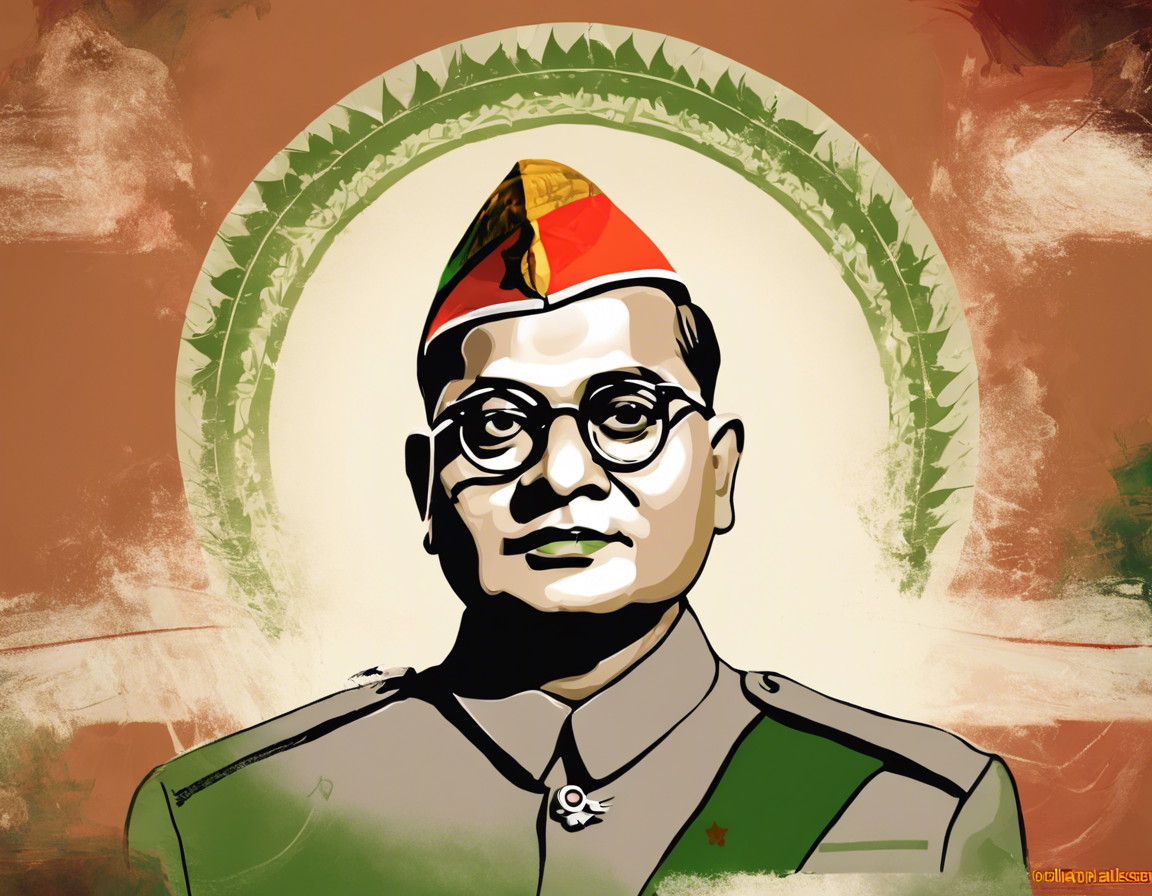Subhash Chandra Bose Jayanti: A Celebration of a National Hero
Subhash Chandra Bose, popularly known as Netaji, was one of India’s most prominent and influential leaders during the independence movement against British colonial rule. His contributions to the fight for freedom and his unwavering dedication to the cause have earned him a place of honor in the hearts of millions of Indians. Every year, on January 23rd, his birth anniversary is celebrated as Subhash Chandra Bose Jayanti to honor his legacy and sacrifices. This article will delve into the life and achievements of Netaji, the significance of Subhash Chandra Bose Jayanti, and ways to celebrate and commemorate this special day.
The Life and Achievements of Subhash Chandra Bose
Subhash Chandra Bose was born on January 23, 1897, in Cuttack, Orissa, to a prominent Bengali family. His early education was in Calcutta, and he later traveled to England to study at Cambridge University. Bose was deeply influenced by the widespread poverty and injustices he witnessed in India, which kindled his passion for the country’s independence.
Bose’s active involvement in the Indian National Congress led to his rise as a prominent leader within the organization. His strong advocacy for complete independence from British rule, even if it meant taking up arms, set him apart from other leaders during that time. Bose’s famous call of “Give me blood, and I shall give you freedom” resonated with many Indians who were eager to fight for their motherland’s liberation.
One of Bose’s most significant contributions was his formation of the Azad Hind Fauj or Indian National Army (INA) in collaboration with Japan during World War II. The INA played a crucial role in the struggle for India’s independence and boosted the morale of the Indian masses in their fight against the British.
Significance of Subhash Chandra Bose Jayanti
Subhash Chandra Bose Jayanti holds immense significance in Indian history and serves as a reminder of Netaji’s fearless leadership, patriotism, and sacrifices for the nation. It is a day to pay tribute to his unwavering commitment to the cause of Indian independence and his vision of a free and prosperous India.
The celebration of Subhash Chandra Bose Jayanti helps in keeping alive the memories of this stalwart of India’s freedom struggle. It inspires the younger generations to uphold the values of courage, selflessness, and dedication to the nation. Additionally, it serves as a beacon of hope and a symbol of resilience for all those who continue to fight for justice and equality.
Ways to Celebrate Subhash Chandra Bose Jayanti
There are several meaningful ways to celebrate Subhash Chandra Bose Jayanti and honor the legacy of this great leader. Here are some ideas for commemorating this special day:
1. Flag Hoisting Ceremony:
- Organize a flag hoisting ceremony in your locality, school, or workplace as a mark of respect for Netaji and the sacrifices made by freedom fighters.
2. Educational Seminars and Workshops:
- Host seminars, workshops, or discussions on the life and contributions of Subhash Chandra Bose to raise awareness among people, especially the youth.
3. Essay Writing and Quiz Competitions:
- Conduct essay writing competitions or quizzes on the theme of Indian freedom struggle, focusing on Netaji’s role in it.
4. Cultural Programs:
- Organize cultural programs featuring patriotic songs, dance performances, and theatrical productions highlighting Bose’s life and principles.
5. Community Service Activities:
- Engage in community service activities such as distributing food to the needy, organizing blood donation camps, or volunteering at local organizations in honor of Netaji’s selfless service to the nation.
6. Digital Tributes:
- Pay tribute to Subhash Chandra Bose on social media platforms by sharing quotes, photos, videos, and articles about his life and achievements.
Frequently Asked Questions (FAQs)
Q1. Who was Subhash Chandra Bose, and why is he known as Netaji?
A1. Subhash Chandra Bose was a prominent leader in India’s independence movement against British colonial rule. He is affectionately referred to as Netaji, which means “Respected Leader” in Hindi.
Q2. What was the Azad Hind Fauj, and what was its role in the freedom struggle?
A2. The Azad Hind Fauj, also known as the Indian National Army (INA), was formed by Subhash Chandra Bose to fight against British colonial rule in India during World War II. The INA played a crucial role in the freedom struggle by challenging British dominance in India.
Q3. Why is Subhash Chandra Bose Jayanti celebrated on January 23rd?
A3. Subhash Chandra Bose Jayanti is celebrated on January 23rd to mark the birth anniversary of Netaji and to honor his contributions to the Indian freedom movement.
Q4. How can one contribute to keeping Subhash Chandra Bose’s legacy alive?
A4. One can contribute to keeping Netaji’s legacy alive by studying his principles and ideologies, educating others about his role in the freedom struggle, and actively participating in initiatives that uphold the values he stood for.
Q5. What are some famous quotes by Subhash Chandra Bose?
A5. Some of Subhash Chandra Bose’s famous quotes include:
– “Give me blood, and I shall give you freedom.”
– “Freedom is not given, it is taken.”
– “It is our duty to pay for our liberty with our own blood.”
In conclusion, Subhash Chandra Bose Jayanti is a day of remembrance and reverence for a national hero who dedicated his life to the service of his country. By celebrating this day with respect, gratitude, and a commitment to upholding his ideals, we can continue to draw inspiration from Netaji’s extraordinary legacy and strive towards building a better, more just society for all.

